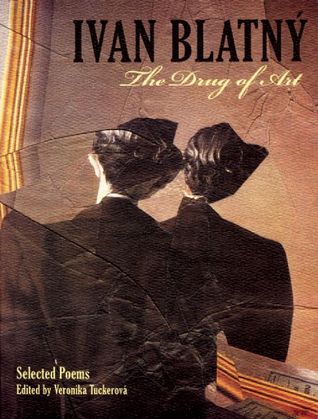"The Drug Of Art" by Ivan Blatný
 Czech poet Ivan Blatný, like many of his contemporaries, found himself in exile after he was “officially banned” by the communist regime in the late 1940s. Declared dead on Czech radio, his poetry was forever banished and he went to spend the rest of his life in obscurity in England where he continued to write but found no publishers for his work. It wasn’t until the late 1970s that some of his work began to find a home in publications such as samizdat and other exile publishers but it wasn’t until 1989 that his work would appear in his home country again.
Czech poet Ivan Blatný, like many of his contemporaries, found himself in exile after he was “officially banned” by the communist regime in the late 1940s. Declared dead on Czech radio, his poetry was forever banished and he went to spend the rest of his life in obscurity in England where he continued to write but found no publishers for his work. It wasn’t until the late 1970s that some of his work began to find a home in publications such as samizdat and other exile publishers but it wasn’t until 1989 that his work would appear in his home country again.
The last years of his life were spent in an English mental institution, where he continued to write, much of which was tossed by the staff for being the mere ramblings of a mentally ill patient. Luckily some of his work survived and this volume seeks to make that available for a contemporary audience.
Like a lot of Czech poetry and literature from this time, much of the work is surrealistic and experimental. Many of the early poems are about his childhood on Czechoslovakia and his later work experiments with multilingual poems, incorporating Czech, French, and English all in the same work. For me, the work is uneven. Some are not so great. The one’s that work (for me) would rival any poem from his contemporaries, such as Funeral Music, which reads:
Houses of ill repute with clients
a new shepherd in town is looking for them
he asks me for directions, like in Jirasek’s The Lantern
the right of the torchbearer
You must scrub the floor of the lavatory all naked
on your hands and knees even melody.
And Janua Sapientiae:
The Monx speak Monx I speak czech and english
I have an instrument for getting traffic-wordens out of the drain-pipes
and changing them into an apple-rose
It all happens in time-space when the traffic warden is already out
we can hear the noise.
There’s a tragic story behind these works and luckily his work managed to survive him despite the hardships he had to endure for the majority of his life. It is a peek inside the mind of a virtually unknown poet who struggled like the rest of us to be heard. Thankfully someone allowed us to.
 2
2



